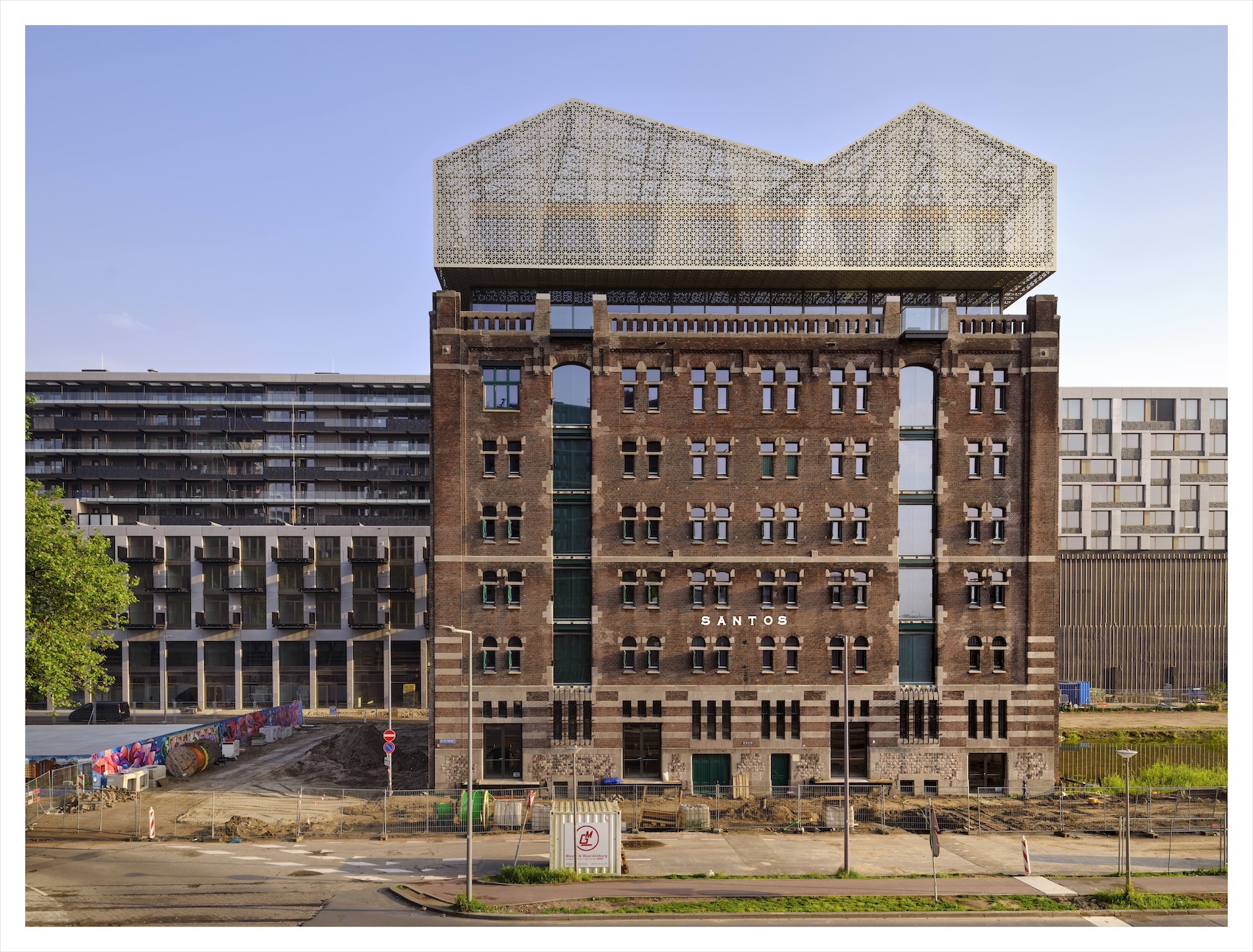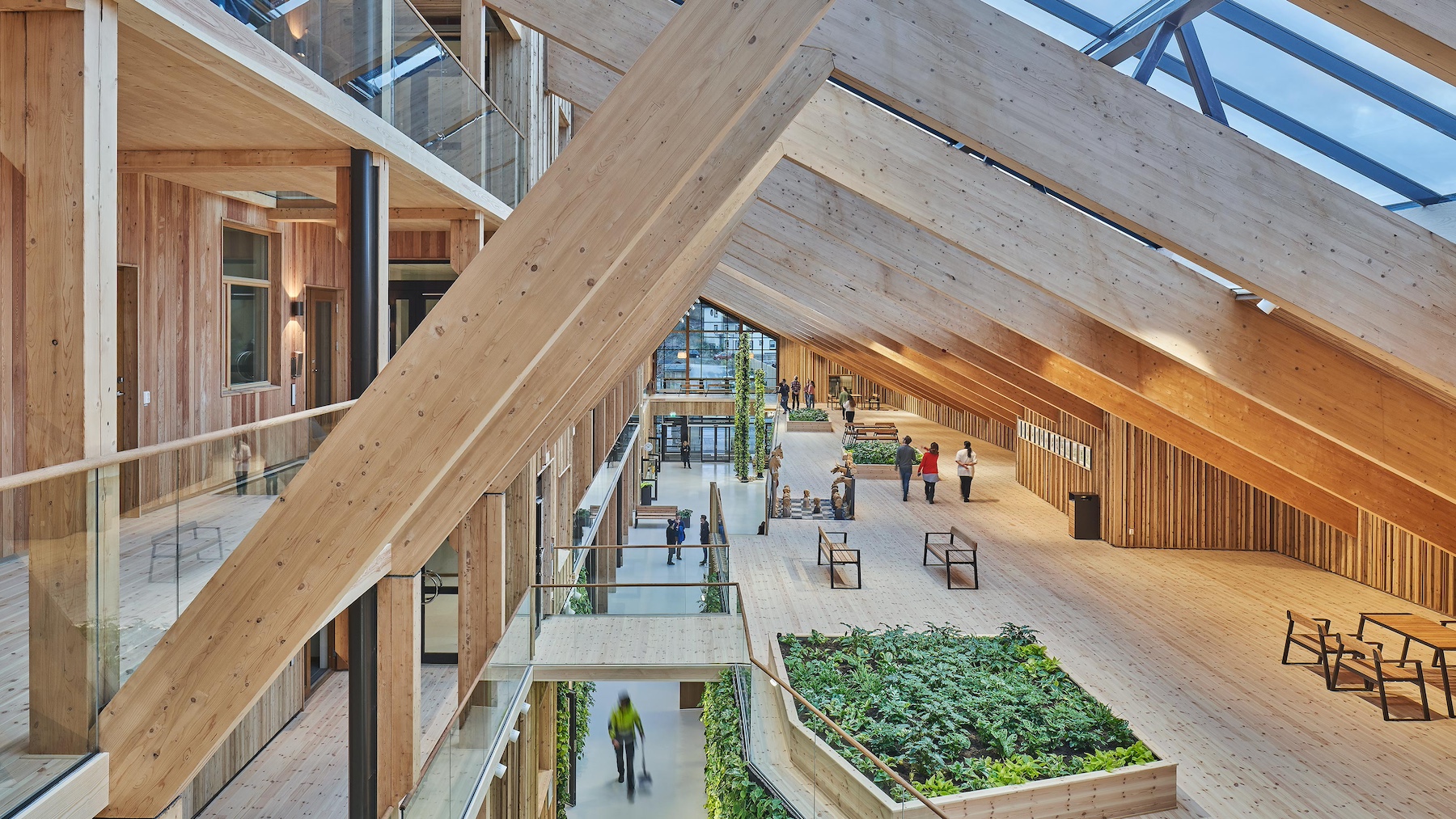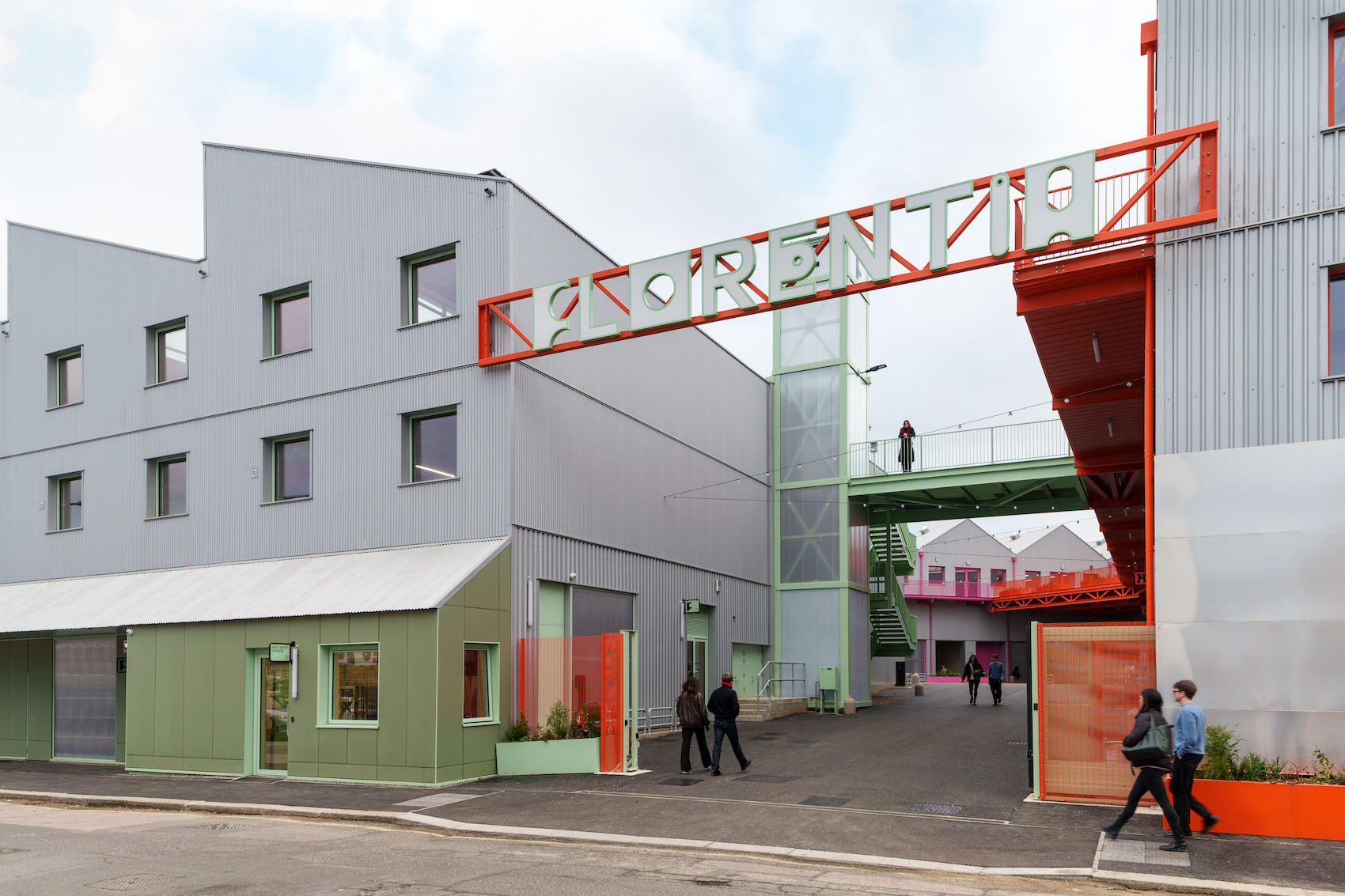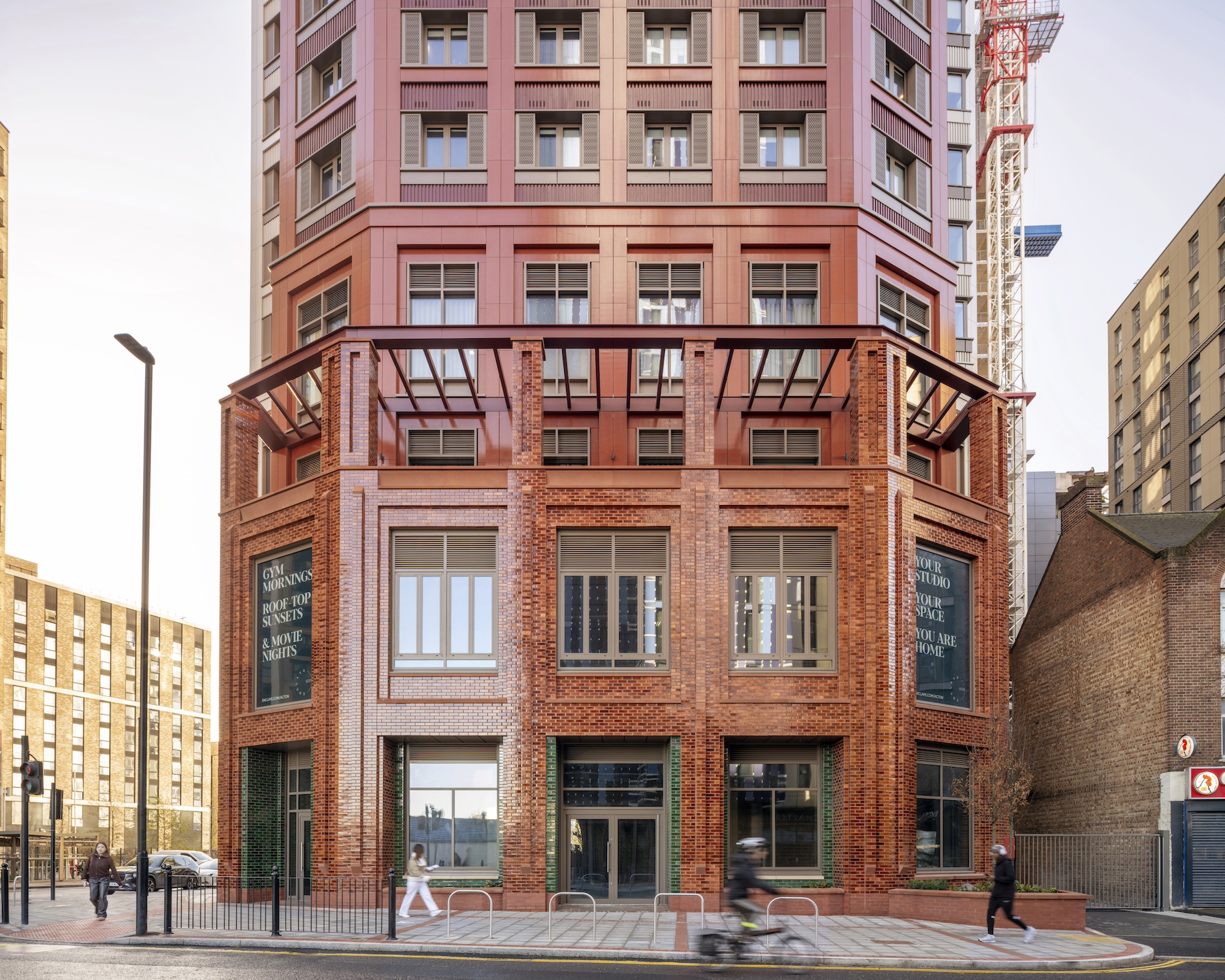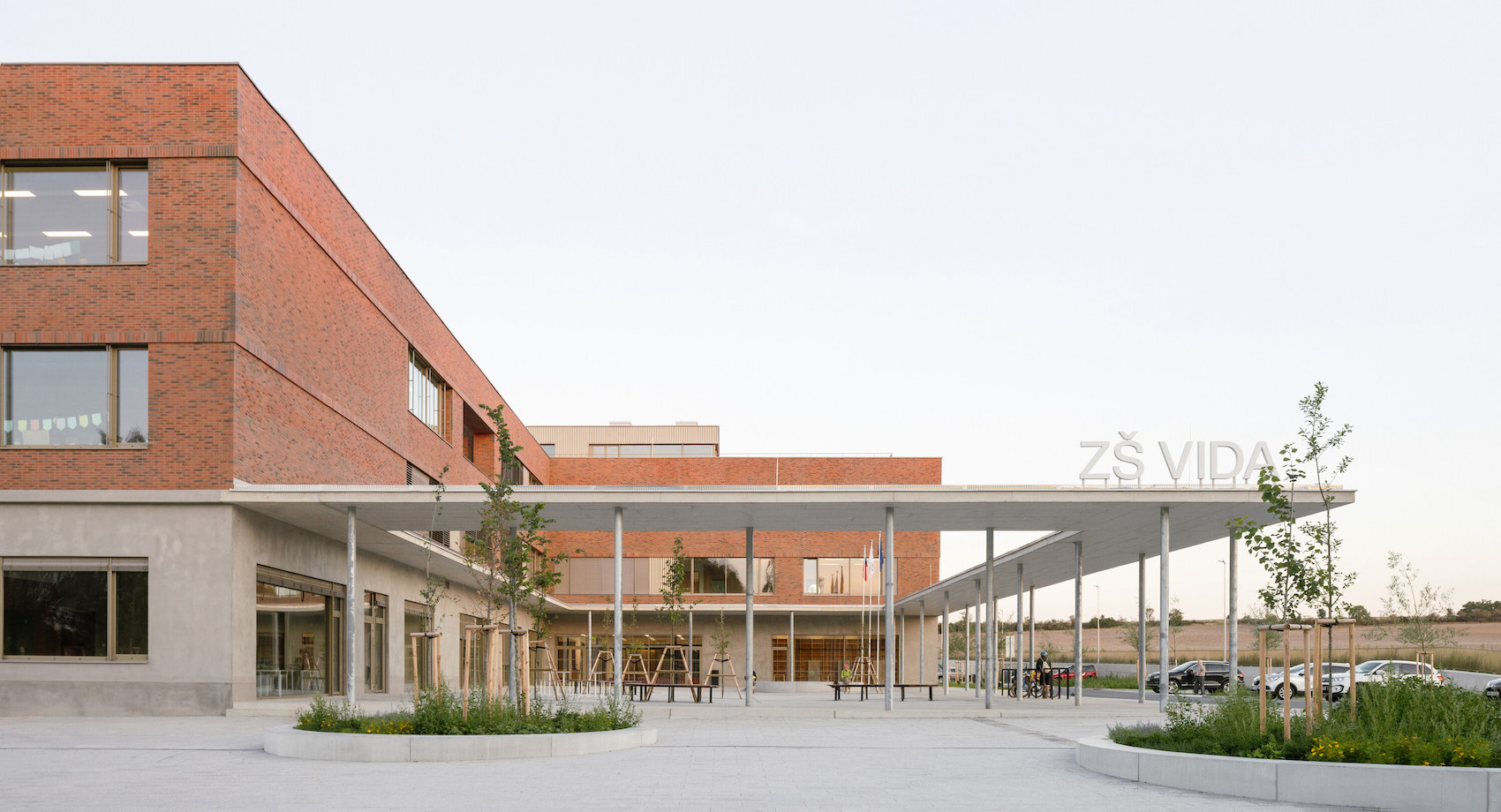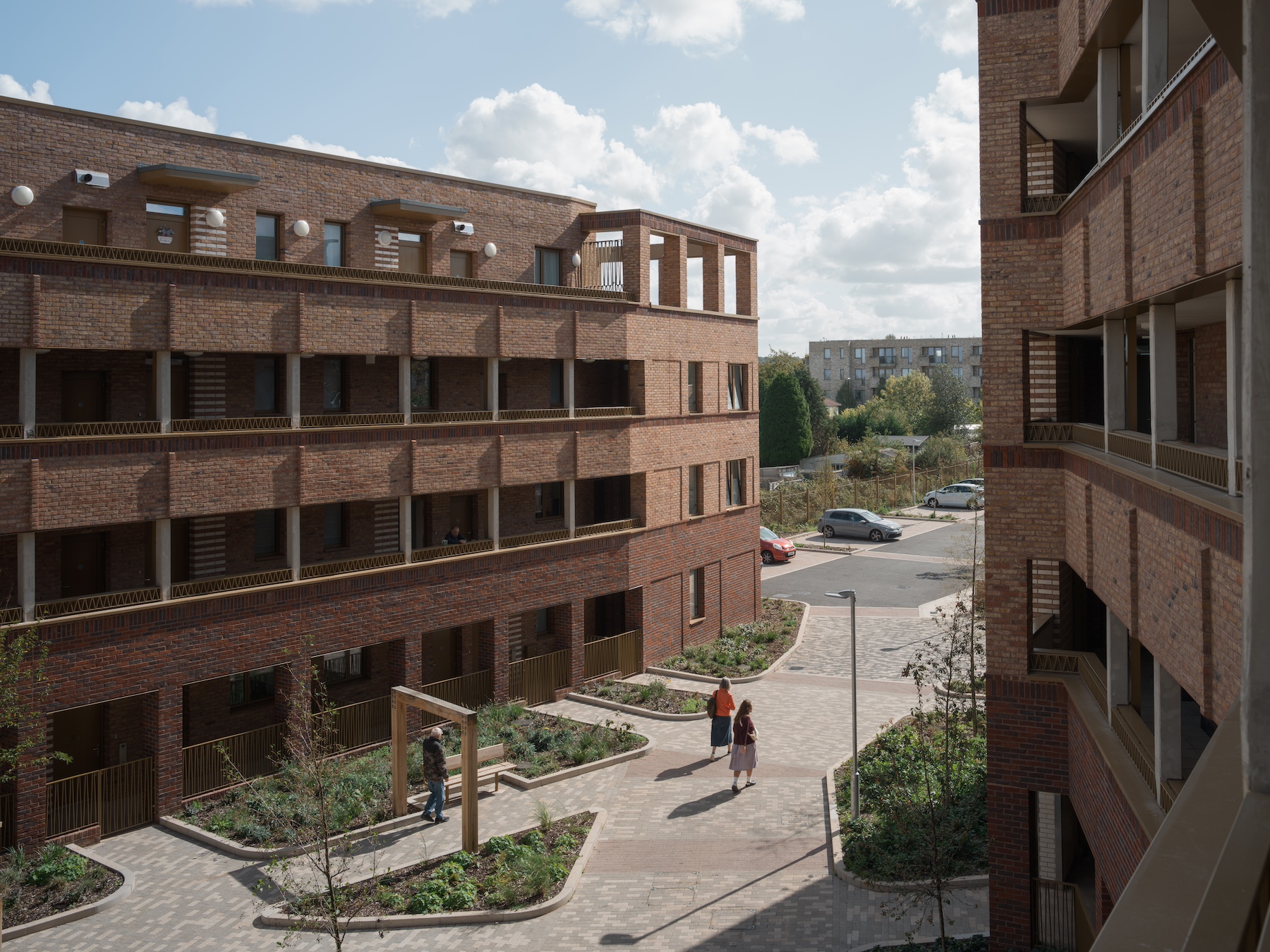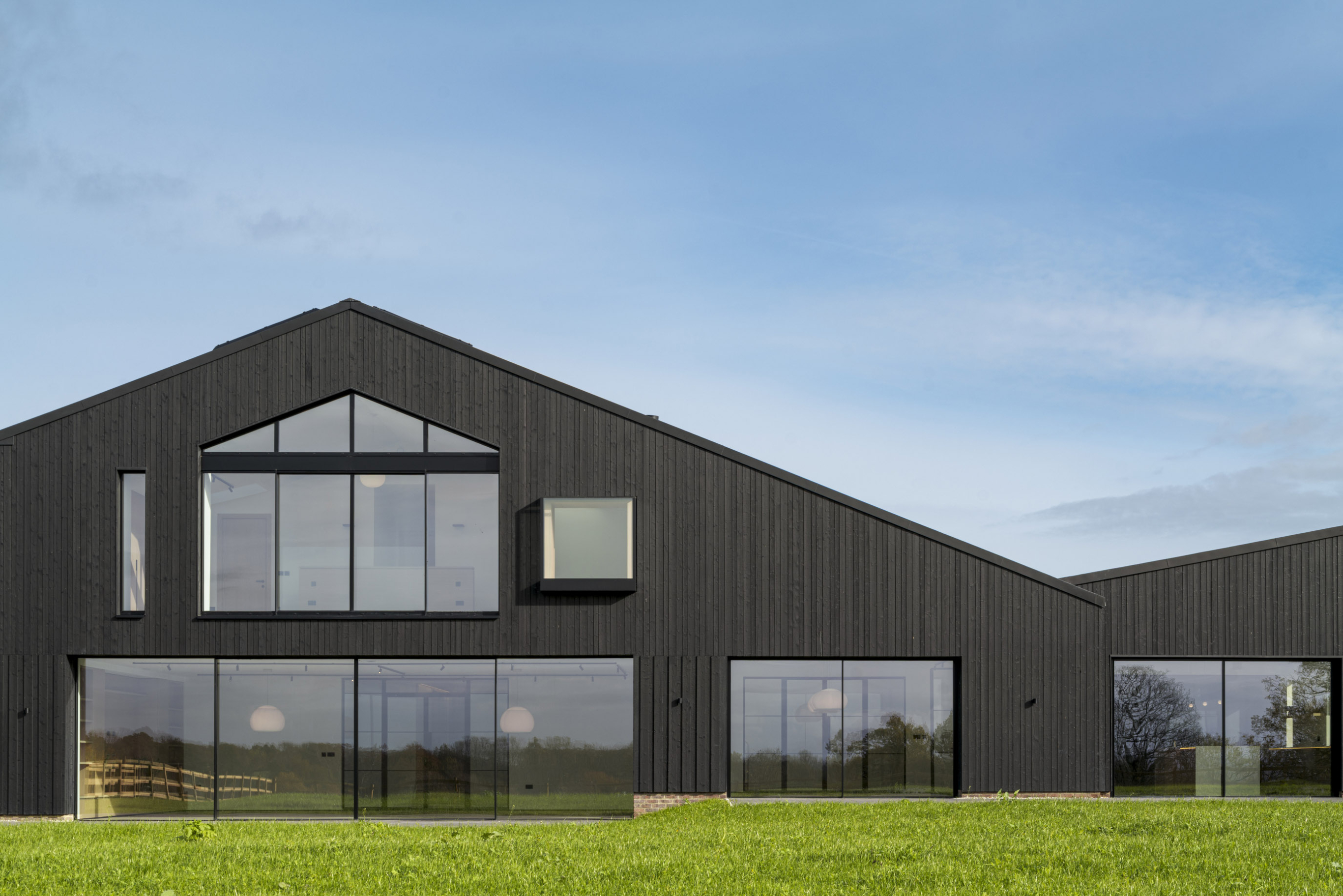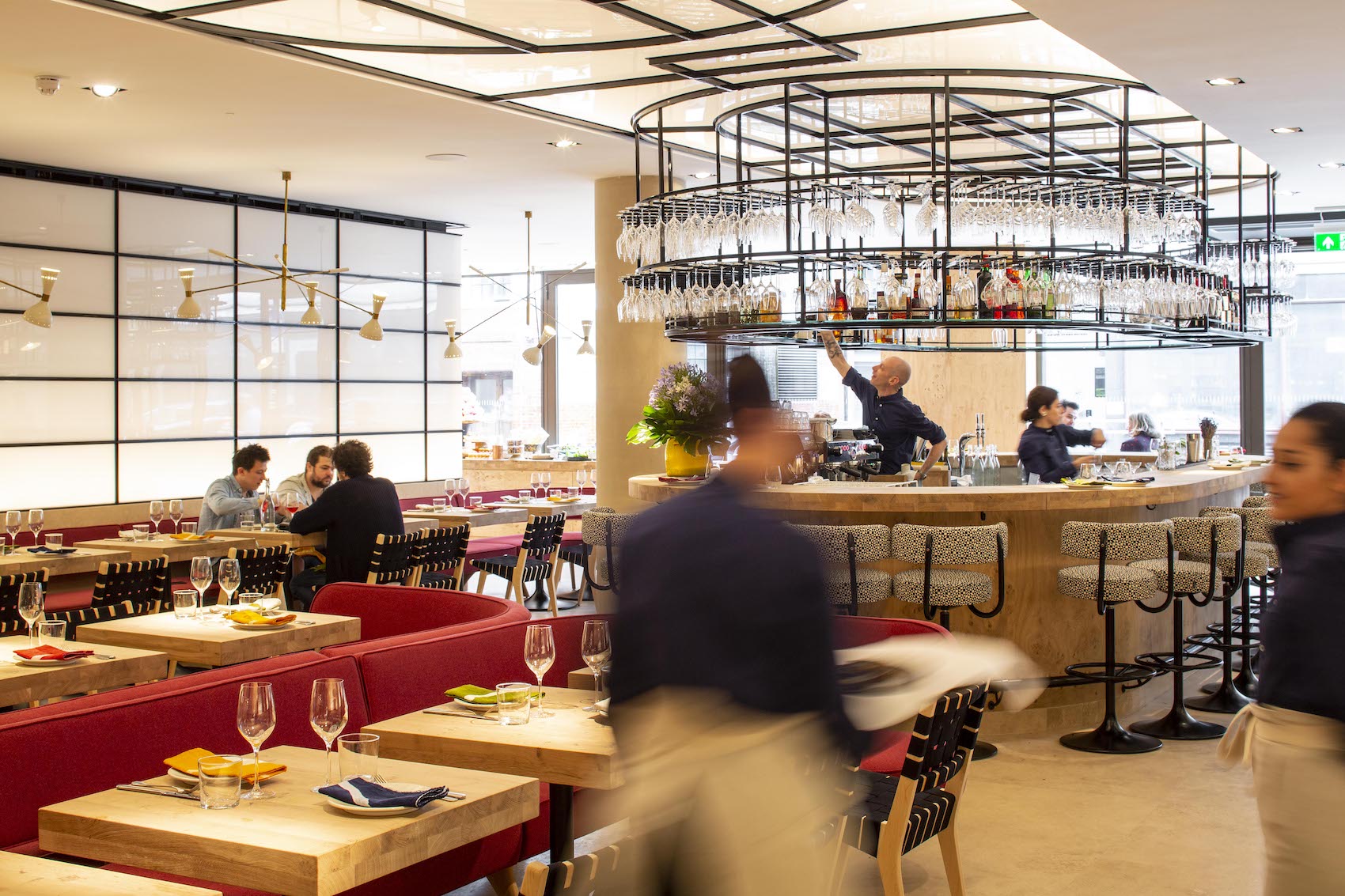Gensler’s transformation of a 1980s Richard Seifert building in Covent Garden reimagines a Brutalist landmark as a vibrant, sustainable workplace centred on wellbeing and community.
Gensler has completed its retrofit of The Acre, a landmark office building in Covent Garden originally designed by modernist architect Richard Seifert in the 1970s. Working alongside Arup, the practice has reconfigured the 260,000 square foot structure – previously a bank – to create a welcoming, all-electric workplace that prioritises sustainability, connectivity, and human experience. More than 80 per cent of the original frame has been retained, saving 4,850 tonnes of embodied carbon.
Located in London’s West End, the building now offers generous public realm and retail amenities, supporting both tenants and the surrounding community. Central to the scheme is ‘The Heart’ – a seven-storey glazed atrium that introduces 20,000 square feet of new amenity and gathering space, including an avenue of shops and restaurants, flexible event areas, as well as a hospitality-style reception fronting Long Acre.
Originally closed off and inward-facing, the building has been opened up through new entrances and a reimagined façade. The retained concrete exterior is contrasted with a softer interior palette and enhanced by biophilic design touches – including timber seating, soft planting, and landscaped terraces that overlook the surrounding cityscape.
The design maximises daylight, fresh air and comfort across each level, with 900 openable windows integrated into the envelope as part of a passive ventilation strategy. New floorplates – the largest in Covent Garden – were achieved by adding two infill blocks that unify the building’s massing. From the third floor upward, each level opens onto a private terrace, offering space to unwind or collaborate in the open air. Blue roofs have also been added help to harvest rainwater, cutting water use by 40 per cent.
Gensler’s approach focused on creating a joyful, future-proofed workspace. Floor plans are deliberately flexible, catering to evolving modes of working, with generous zones for both concentration and collaboration. A mixed-mode ventilation system allows for user control, improving comfort and indoor air quality, while Artus fan coil units support efficient heating and cooling.
The Acre’s retrofit has resulted in a building that is net-zero in operation, powered entirely by renewable electricity and energy efficiency measures have reduced operational energy use by more than 70 per cent.
“Design has the power to transform communities, and The Acre exemplifies this vision by restoring the relationship between the iconic building and its context,” said Valeria Segovia, principal and design director at Gensler. “Its transformation is about reinvention and connecting the past with the future to create a relevant, healthy and sustainable workplace. Located in the heart of Covent Garden, The Acre stands as a landmark that will enhance the vibrant energy of the area, offering an inspiring, inclusive and welcoming space for the public, local community, and tenants alike.”
At the end of 2024, The British Standards Institution committed to occupying the top two floors, citing The Acre’s environmental performance as a key factor. With 365 cycle spaces, end-of-journey facilities, and a programme of community engagement, the development promotes a culture of active and inclusive use.
“Through this transformation, The Acre has taken on its own identity as a new landmark in Covent Garden. Located in the centre of one of London’s most exciting neighbourhoods, it is now part of a tapestry of existing culture, energy and connectivity that is increasingly drawing occupiers to the West End,” said James Myburgh, vice president at Northwood Investors. “Looking back at what stood here before, this project demonstrates the potential for strategic and sustainable reuse of buildings in a way that responds intelligently to occupier demand. Now, we look forward to welcoming our occupiers and retailers to their new home over the coming months and opening The Acre up to the wider community to enjoy.”












